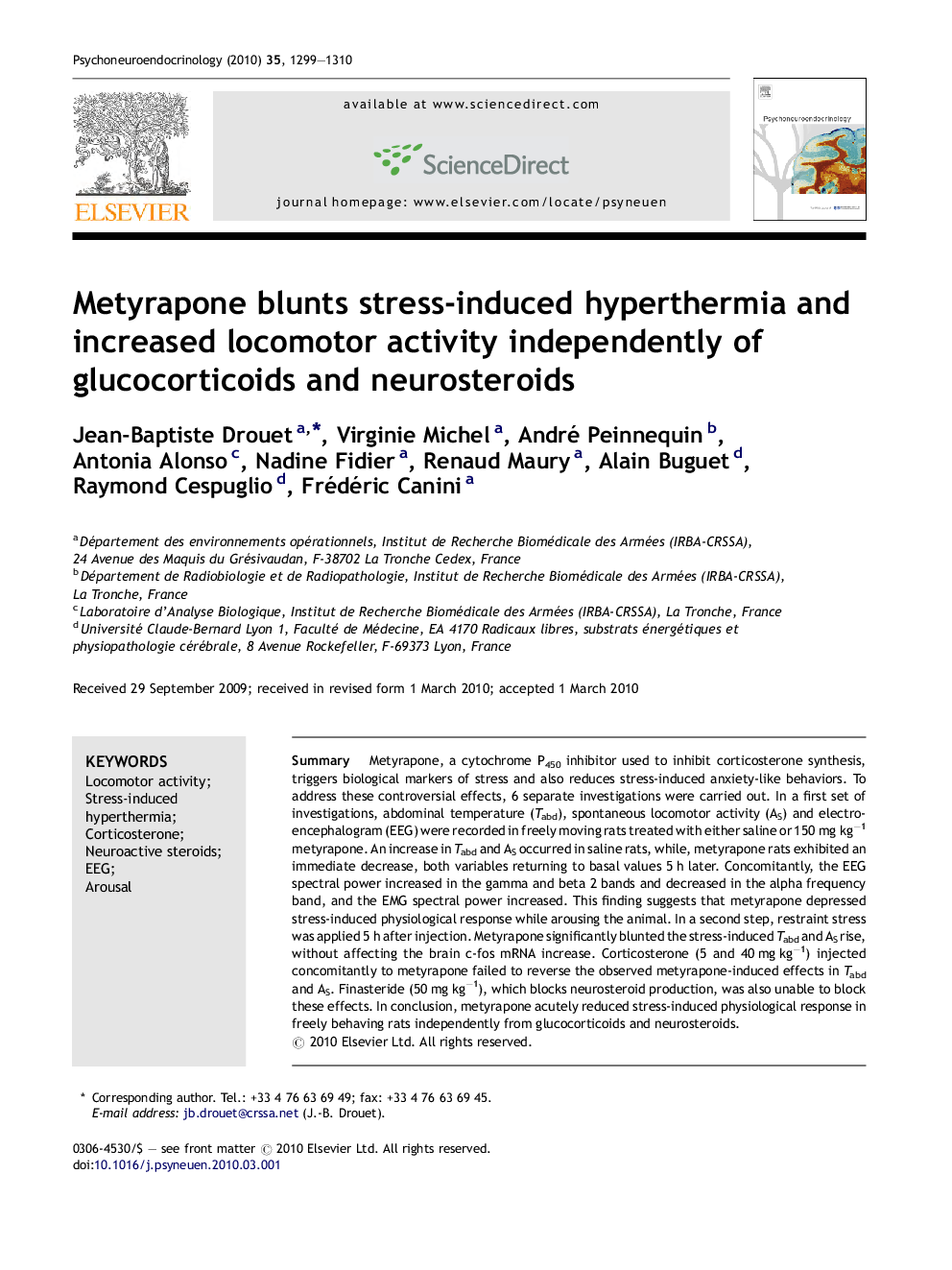| Article ID | Journal | Published Year | Pages | File Type |
|---|---|---|---|---|
| 336528 | Psychoneuroendocrinology | 2010 | 12 Pages |
SummaryMetyrapone, a cytochrome P450 inhibitor used to inhibit corticosterone synthesis, triggers biological markers of stress and also reduces stress-induced anxiety-like behaviors. To address these controversial effects, 6 separate investigations were carried out. In a first set of investigations, abdominal temperature (Tabd), spontaneous locomotor activity (AS) and electroencephalogram (EEG) were recorded in freely moving rats treated with either saline or 150 mg kg−1 metyrapone. An increase in Tabd and AS occurred in saline rats, while, metyrapone rats exhibited an immediate decrease, both variables returning to basal values 5 h later. Concomitantly, the EEG spectral power increased in the gamma and beta 2 bands and decreased in the alpha frequency band, and the EMG spectral power increased. This finding suggests that metyrapone depressed stress-induced physiological response while arousing the animal. In a second step, restraint stress was applied 5 h after injection. Metyrapone significantly blunted the stress-induced Tabd and AS rise, without affecting the brain c-fos mRNA increase. Corticosterone (5 and 40 mg kg−1) injected concomitantly to metyrapone failed to reverse the observed metyrapone-induced effects in Tabd and AS. Finasteride (50 mg kg−1), which blocks neurosteroid production, was also unable to block these effects. In conclusion, metyrapone acutely reduced stress-induced physiological response in freely behaving rats independently from glucocorticoids and neurosteroids.
